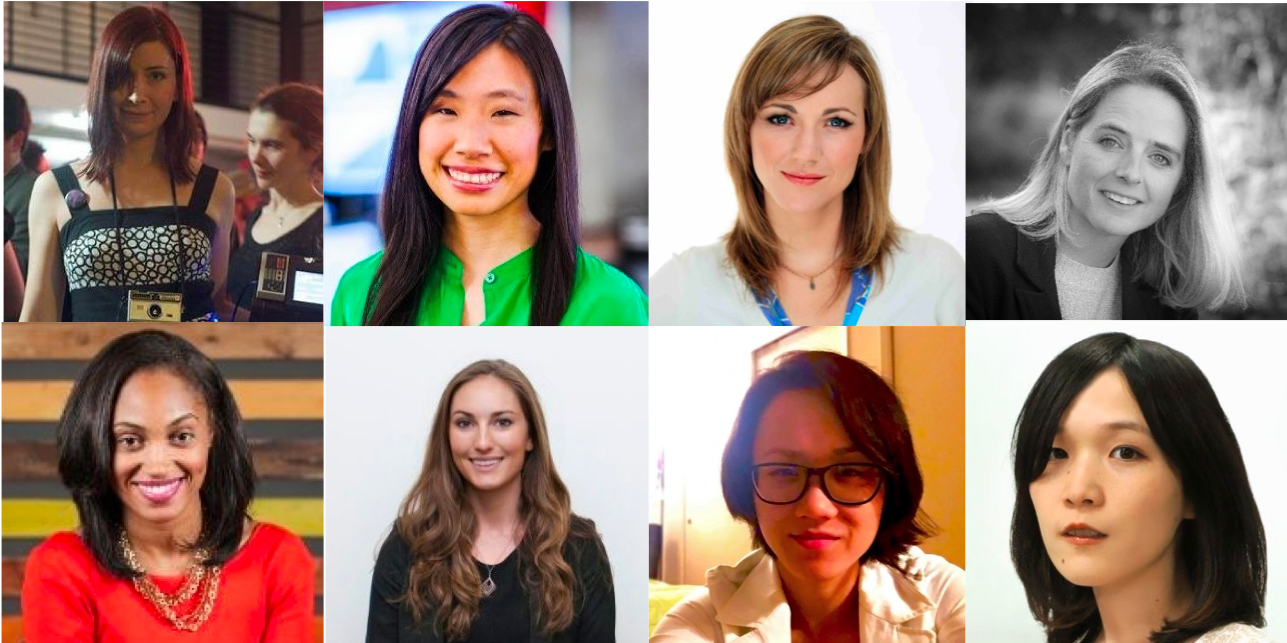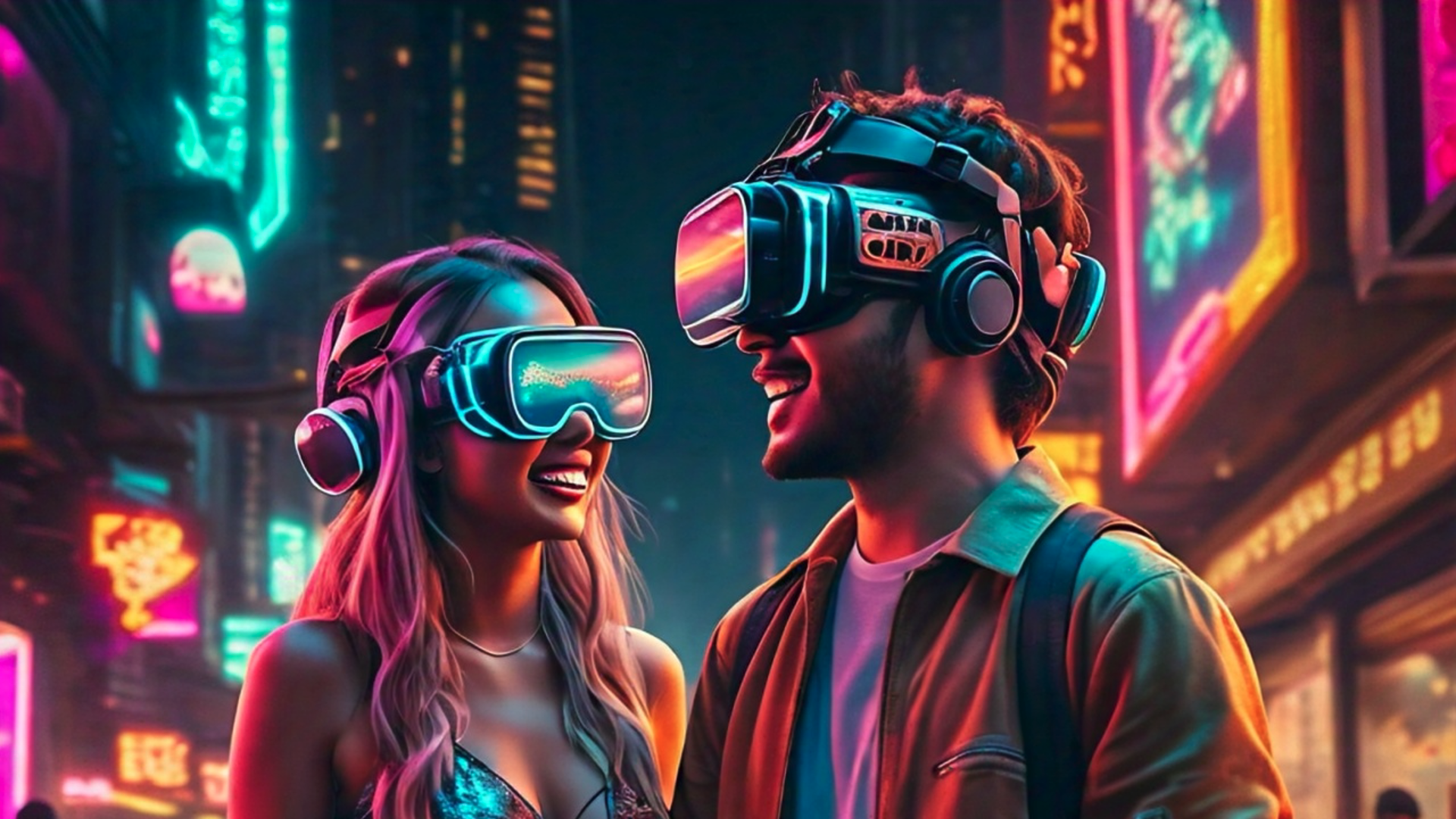For each week of Women’s History Month, beginning on International Women’s Day on March 8th, AWE has been acknowledging eight remarkable Women of AR+VR. The first half of the series celebrated women pioneers who paved the way for today’s women in XR followed by community builders and influencers who are bringing women together and supporting their work in augmented and virtual reality. This week, we’re highlighting 8 brilliant and daring women founders in XR.
*
It takes a lot of heart and courage to start a company, especially as a woman in the tech industry and in an emerging area of technology. Jeri Ellsworth co-founded the augmented reality game company castAR in 2013, when there was no phone-based AR and critics of Google Glass were drowning out its enthusiasts. She was instrumental in negotiating the purchase of technology she and her founding partner had developed at Valve Software and in fundraising and managing the production of 200 developer units of castAR’s first product: A pair of AR glasses that projected images onto a reflective surface with a special wand for interaction. CastAR folded last year but the engagement and magic it promised undoubtedly inspired future founders. Jeri is currently CEO of TiltFive and still passionate about creating products with amazing user experiences.
*
Gaia Dempsey co-founded DAQRI, maker of industrial wearable Augmented Reality products, in 2010. She served in a number of key roles across the company before leaving in December 2017 to start a new research consultancy. For the first four years of her career at DAQRI, Gaia led marketing and public relations. She was integral to the launch of the company’s first flagship product, the DAQRI Smart Helmet, and in January 2015 moved to Dublin to open DAQRI’s first international office. After establishing the brand’s presence in EMEA, she relocated to the UK to create DAQRI Labs and developed the company’s business plan for the automotive market. Gaia’s last role at DAQRI was as VP of Business Operations in LA. It’s safe to say that without Gaia, DAQRI would not have achieved the commercial success or global reach it has today.
*
Diana Hu cofounded Escher Reality in 2016 and served as CTO until the company was acquired by Niantic in February 2018. She and her team built one of the most advanced augmented reality APIs for creating persistent, cross-platform, multi-user AR experiences, thereby offering a functionality that ARCore and ARKit could not. According to Niantic, Escher’s technology will significantly accelerate its own work on persistent, shared AR. Diana, who previously worked at Intel and specializes in machine learning, data mining, computer vision, pattern recognition, signal processing and cloud computing, is now leading AR Engineering at Niantic. Her work has and will continue to further AR’s impact in the world.
*
Ashley Crowder is CEO and Co-founder of VNTANA, an augmented reality platform that allows brands to create interactive holograms of athletes, celebrities and products to engage consumers and generate leads. VNTANA’s AR technology is the first scalable and interactive hologram system; it doesn’t require a wearable, captures real-time data, and has been used by big brands like Microsoft, Lexus, Pepsi and Nike. Prior to cofounding VNTANA in 2012, Ashley worked in the engineering sector at Gulfstream, Northrop Grumman and BP. She is also a global speaker, with high-profile engagements at the Digital Summit, AWE, TEDx Venice, U.S. Chamber of Commerce, Digital LA, and more.
*
In 2015, Maureen Fan co-founded Baobab Studios, the VR animation company of which she is now CEO. Before that she accrued experience in film (Pixar), gaming (Zynga) and the consumer web (eBay), often by educating her superiors about unconscious bias and convincing them to let her take on the positions she desired. She worked on the 2015 Oscar-nominated Best Animated Short “The Dam Keeper” and oversaw the FarmVille sequels, some of Zynga’s biggest revenue earners, as VP of Games; but it is by founding Baobab that she was able to fully apply her multidisciplinary background in computer science, art and psychology along with her Harvard MBA. Maureen believes in the magic of animation—Baobab’s mission is to bring out users’ sense of wonder and inspire people to dream.
*
Jessica Butcher is Co-founder and Director of Blippar, the multi-award-winning UK startup with the world’s leading mobile visual browser—a “pub idea” that became a multimillion-dollar valued company and has been named among the CNBC Disruptor 50 for three years running. Founded in 2011, Blippar created the first AR browser app. The company specializes in Augmented Reality and Computer Vision, “the field within AI that understands sight,” and continuously pushes the boundaries of visual search and user experience. Jessica herself has received numerous honors, including making the Inspiring 50 in European tech (2016), BBC’s 100 Women (2014) and Fortune’s Top 10 Most Powerful Female Entrepreneurs (2012). She is an experienced public speaker and media commentator and a passionate start-up mentor and angel.
*
In 2015, FOVE Co-founder and CEO Yuka Kojima graced the cover of the Forbes Japan “World’s 100 Most Powerful Women” issue. She also made last year’s Forbes 30 Under 30 Asia list in Consumer Technology. Yuka, a former Sony game designer, cofounded FOVE in 2014. The company boasts the world’s first eye-tracking VR headset, which can be used for gaming, movies, healthcare and education. Whereas entire scenes are in sharp focus in other virtual experiences, FOVE replicates the depth of field one sees in the real world by tracking the user’s gaze and adjusting focus, which makes things like eye contact and aiming weapons in games more natural. Today, Yuka directs FOVE’s vision, project management and business relations.
*
Jewel Burks was Co-founder and CEO of the groundbreaking Atlanta-based visual search startup Partpic from 2013 to 2016, when the company was acquired by Amazon. Partpic’s proprietary software was designed to streamline the purchase of maintenance and repair parts—computer vision technology that could be integrated into the mobile apps and websites of parts distributors and retailers, and potentially change the way people everywhere locate products. The solution Jewel and her team built attracted the attention of Amazon, which opened an Atlanta office for its A9.com subsidiary where Burks is now Team Lead for Visual Search. Additionally, Jewel is a board member at Amplify 4 Good and a proud advocate for representation and access in the tech industry who spends much of her free time working with startups.



